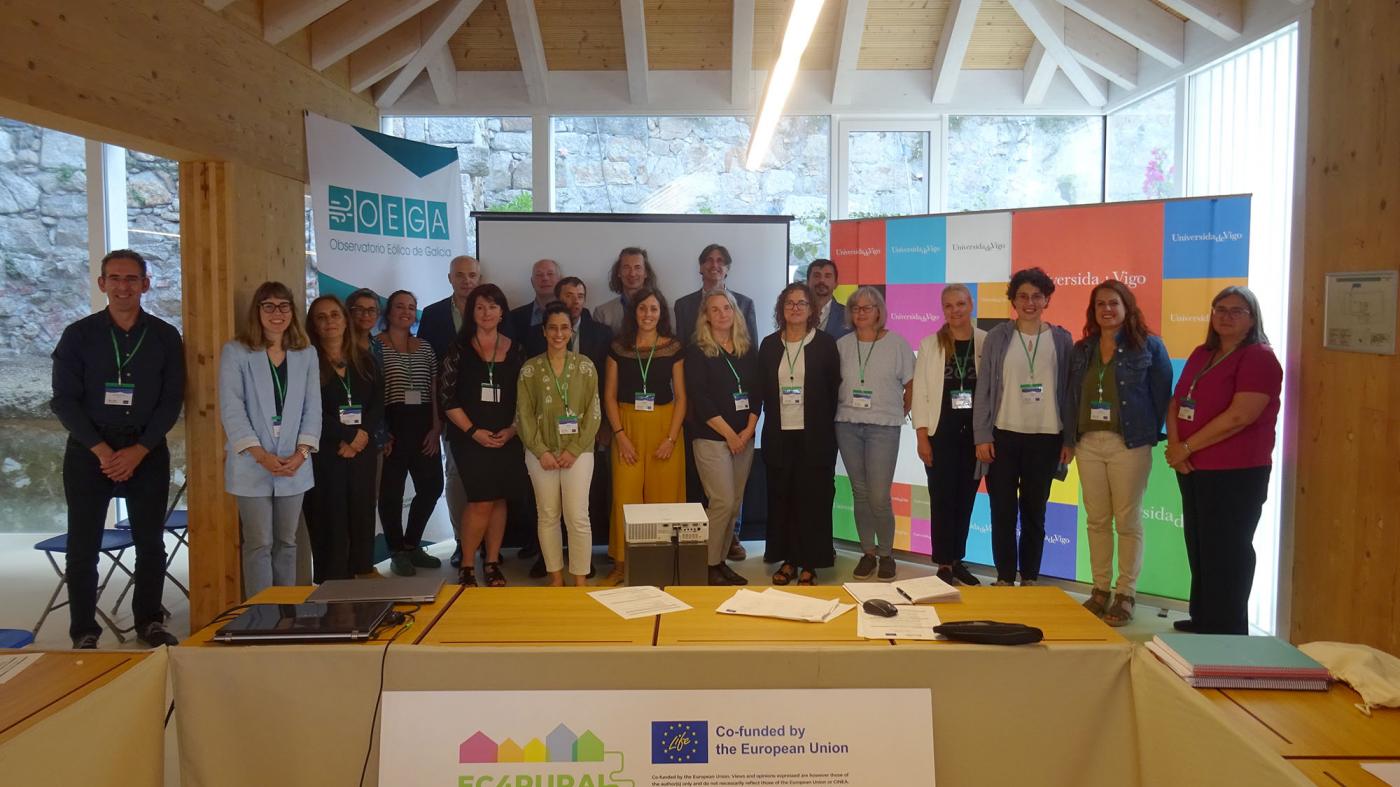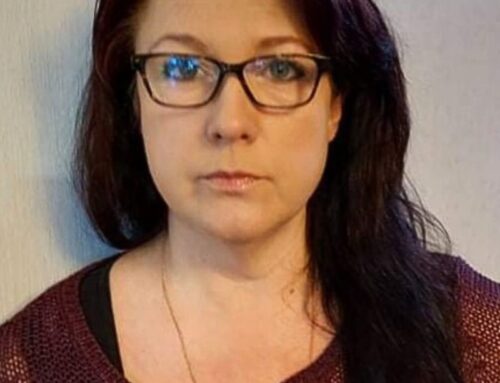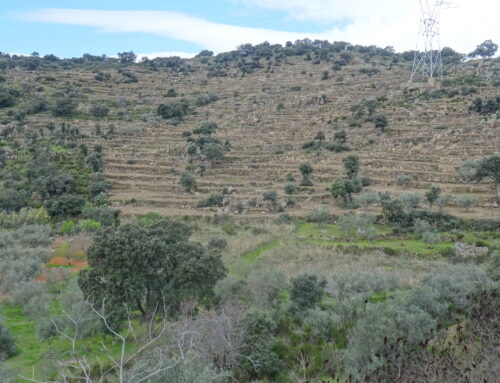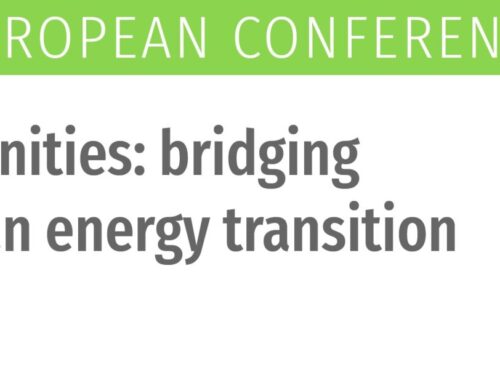The European project EC4RURAL was launched this September with a budget of 1.6 million euros and ten partners from three countries, led by the University of Vigo, with the aim of promoting the transition to clean energy in European rural areas through energy communities. The organisations that make up the consortium met for the inaugural meeting of this project, which will run for 48 months and is co-funded by the LIFE programme.
The University of Vigo is leading the multidisciplinary consortium, which includes the University of Tartu (Estonia), the Galician Federation of Municipalities and Provinces, the Association of Estonian Cities and Municipalities, the Regional Energy Agency of Tartu, the Sapiens Energía cooperative, the LEADER Union of Estonia, Espazocoop Union of Galician Cooperatives, the Juana de Vega Foundation, and the European Association of LEADER Groups for Rural Development of Belgium.
The inaugural meeting was attended by Maribel Doval, Vice Rector for Welfare, Equality and Diversity; Carlos Martínez Carrillo, Vice President of FEGAMP; and Xavier Simón, Principal Investigator of the project, from the Department of Applied Economics, member of CISPAC (Inter-University Centre for Research on Atlantic Cultural Landscapes) and Director of the Galician Wind Energy Observatory. Simón explains that the aim of EC4RURAL is to promote the creation of energy communities in rural communities, which, despite their wealth of resources, are in a disadvantaged situation in Europe. Depopulation, combined with limited access to basic services and employment, results in energy poverty for people living in these areas, a situation that is exacerbated by high energy prices. The challenge for this consortium is therefore to help transform the relationship between local and regional authorities and rural communities in order to contribute to the transition to clean energy in Europe and to ensure that these rural areas are part of and benefit from the transition processes led by communities producing electricity through photovoltaic panels.
This paradigm shift begins with two pilot projects in Estonia and Spain, which will allow the creation and implementation of 34 energy communities in other rural municipalities, 12 in Estonia and 22 in Galicia (Avión, Becerreá, Entrimo, Mazaricos, Moeche, Monterroso, Muíños, Muras, Ordes, Ourol, Outes, Palas de Rei, A Pobra do Brollón, O Rosal, Salvaterra de Miño, Silleda, Sober, Tomiño, Tordoia, O Valadouro, Vedra and Vilasantar). This action covers almost 2,700 hectares and 94,000 inhabitants.
Throughout the 48 months of work, the team will also focus on improving training in the field of community energy development, both from a legal, technical, and financial point of view, so that local agents can support these initiatives. Flexible and viable investment decisions will be promoted through renewable energy business models for rural energy production and policy, legal and regulatory recommendations will be made. All this will contribute to the second pillar of the Common Agricultural Policy and the European Territorial Agenda. Finally, the scalability of the project and its replicability in other regions will be sought.






